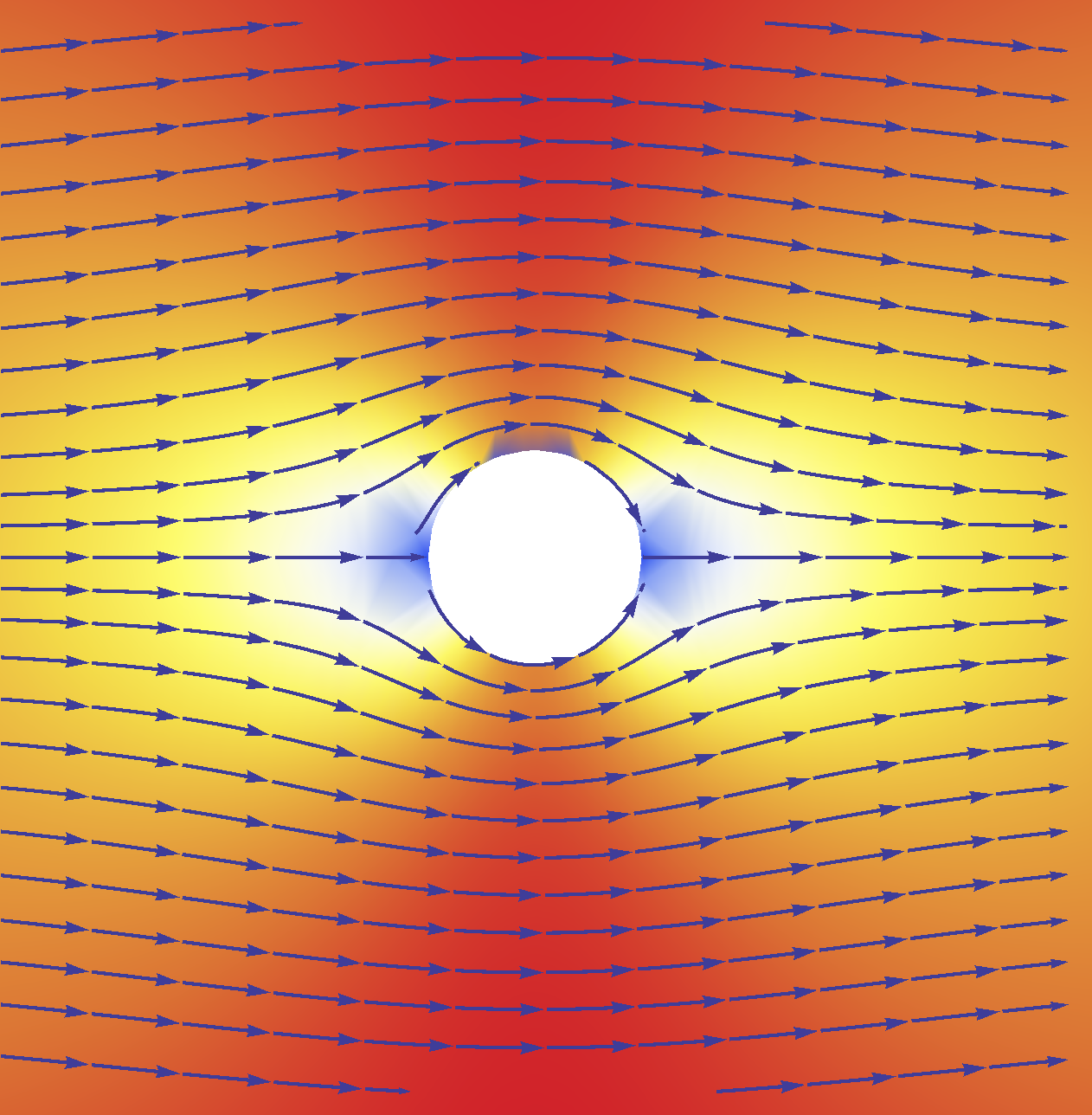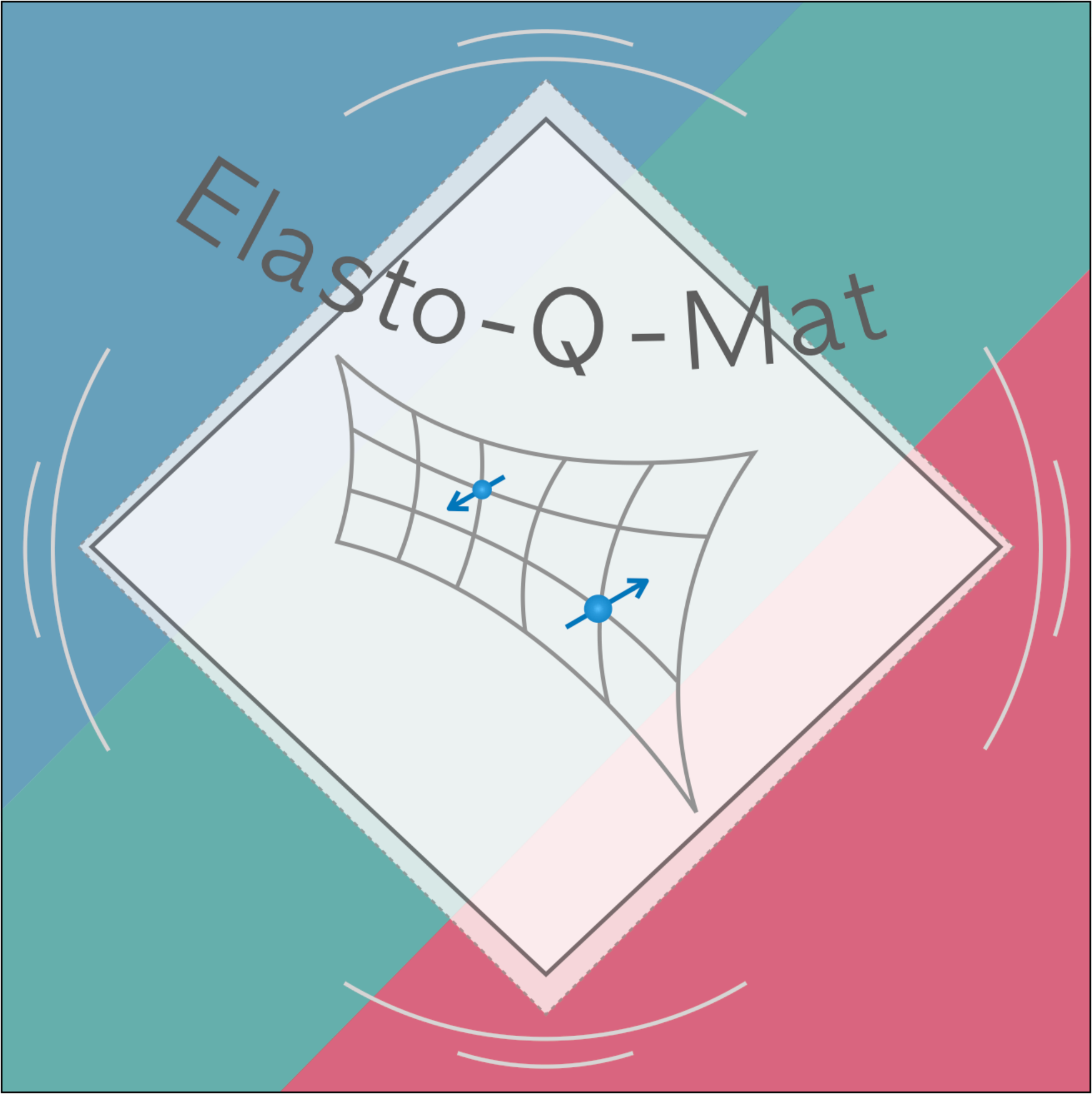Welcome to the Institute for Theory of Condensed Matter
The institute was founded in 1976 and today comprises four groups. In close collaboration with the Institute for Quantum Materials and Technologies (IQMT) they conduct research on a wide range of topics in contemporary condensed matter physics. Close interactions, collaborations, and joint seminars exist with our partner institute, the Institute for Theoretical Solid State Physics (TFP).



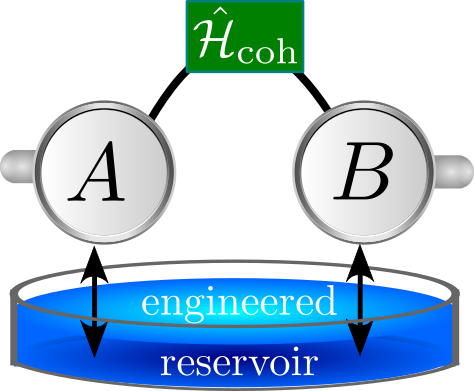
Engineered quantum systems: superconducting circuits, electro- and optomechanical systems, nonreciprocity, quantum-limited amplification
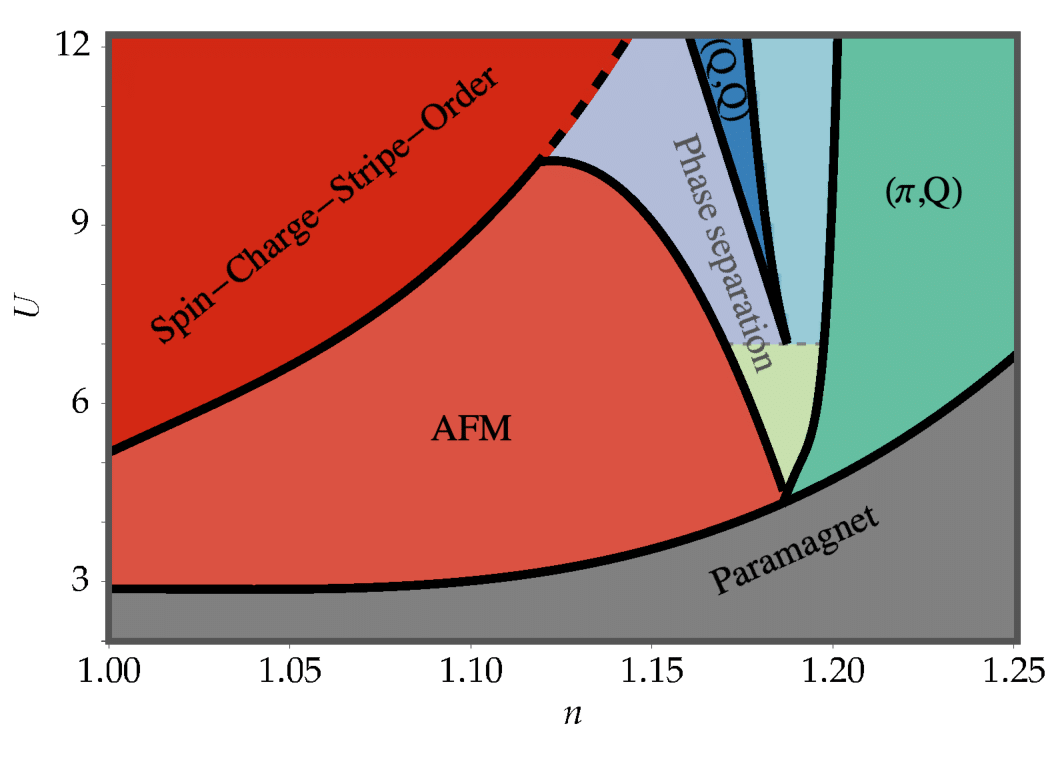
Strongly correlated electron systems: spin and charge order, critical behavior, quantum transport and superconductivity
Hydrotronics - EU-funded network for research on ultra-pure materials
|
The investigation of electronic hydrodynamics is a central research topic of researchers at our Institute. The emergence of hydrodynamic electronics can be seen in non-local, superballistic and pre-turbulent transport of energy and electric charge. There is a growing interest in the hydrodynamic effects in interacting electron systems in ultra-pure materials. The EU-funded project HYDROTRONICS is coordinated by researchers of our institute. It brings together researchers from seven countries and three continents that work on hydrodynamic charge and energy transport in electronic systems. |
Flow past a circular obastacle |
Elasto-Q-Mat — DFG-funded Transregional Collaborative Research Center on Quantum Materials
|
Quantum materials are characterized by unusual physical properties. Elasto-Q-Mat, a Transregional Collaborative Research Center (SFB-TRR) in close cooperation between the Karlsruhe Institute of Technology (KIT), the Goethe University Frankfurt, the Johannes Gutenberg University Mainz, the Max Planck Institute of Polymer Research in Mainz, and the Max Planck Institute for Chemical Physics of Solids in Dresden will investigate quantum materials whose properties can be dramatically changed through elastic deformations.
|
|
In honor of Professor Jörg Schmalian's 60th birthday and his pioneering achievements in the field of the physics of quantum materials, this workshop will be a platform showcasing groundbreaking research and recent advancements both from an experimental and theoretical point of view.
It will take place at the Scientific Meeting and Conference Center Gastdozentenhaus Karlsruhe from the 23rd to the 27th of June 2025. The registration deadline is March 31, 2025.
More information and registration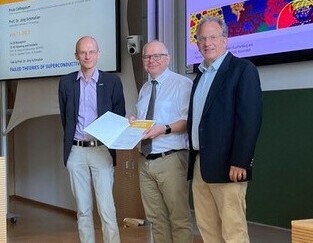
As an "outstanding theoretical condensed-matter physicist with strong connections to Dresden", Jörg Schmalian has been honoured with this year's "Physik-Preis Dresden". The prize is awarded jointly by the MPI-PKS und the Physics Department of the TUD to scientists whose excellent research has strengthened the collaboration between these two institutions. Congratulations!
Link to prize homepageIn celebration of Professor Alexander Mirlin's 60th birthday and his outstanding contributions to the field, the TKM and the IQMT are organising a workshop on disordered and interacting systems in condensed matter physics. It will take place at the physics department of the KIT South Campus on the 3rd and 4th of November 2022.
More informationJörg Schmalian is one of the recipients of the 2022 John Bardeen Prize. He is recognized for “impactful, materials-based theoretical insights into unconventional superconductors across the periodic table including organic superconductors, cuprates, and pnictides” and “pioneering work on the effect of intertwined order as well as on a beyond-quasi-particle description of normal states for unconventional superconductivity”. The prize is awarded once every three years on the occasion of the M2S (Materials and Mechanisms of Superconductivity) conference. The other winners are Mohit Randeria (The Ohio State University) and Peter Hirschfeld (University of Florida). Congratulations!
Link to prize homepageThe German Research Foundation (DFG) is funding the Transregional Collaborative Research Center Elastic Tuning and Response of Electronic Quantum Phases of Matter (ELASTO-Q-MAT) for the period July 2020 - June 2024. In cooperation with the Universities of Frankfurt and Mainz and Max Planck Institutes in Mainz and Dresden, quantum materials are investigated whose electronic properties are exceptionally sensitive to elastic deformations and strain. Open questions such as superelasticity, nematic order and fluctuations as well as critical elasticity in electronic quantum materials are being addressed. Jörg Schmalian from the Institute of Condensed Matter Theory and the Institute of Quantum Materials and Technologies (IQMT) is the local co-spokesperson of the initiative.
DFG Press ReleaseAt the conference "Recent Progress in Graphene & 2D Materials Research (RPGR 2017)" in Singapore Julia Link is awarded the "RSC Advances Poster Prize" for her poster with the title "Out-of-bounds hydrodynamics in anisotropic Dirac fluids". Congratulations!
Jörg Schmalian explains the elastic properties of critical, strongly correlated systems in the journal for the members of the German Physical Society (Physik Journal 03/2017). In those systems there is no regime where the force is proportional to the displacement.
The American Physical Society honors Igor Gornyi and Alexander Mirlin for their "outstanding service to the physics community".
More informationAlexander Mirlin receives a visiting professorship at the Weizmann Institute in Rehovot, Israel.
Jörg Schmalian answered the questions of high school students in an interview of the American radio station kdnk.
Link to interview
Alexander Mirlin and Jörg Schmalian describe in the journal for the members of the German Physical Society (Physik Journal 05/2016) under which circumstances hydrodynamic behavior occurs in the transport properties of Graphene.
The Russian Academy of Sciences confers the honorary title "Professor of the Russian Academy of Sciences" to our colleague PD Dr. Igor Gornyi. Since the introduction in 2015, this title honors distinguished scientists with Russian citizenship that are younger than 50.
Congratulations!
Watch out for Prof. Jörg Schmalian's recent popular article on "How the Brightest Minds in Physics Failed to Explain a New State of Matter".
Article on ,,The SPS Observer"
